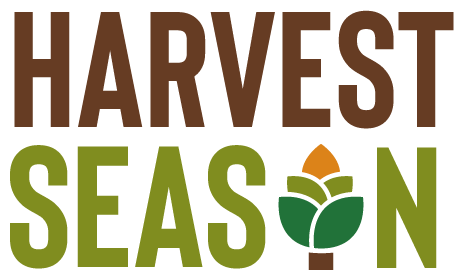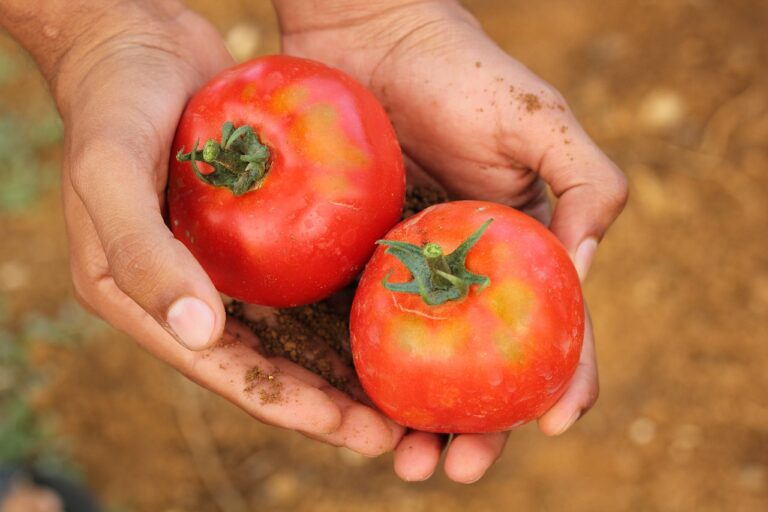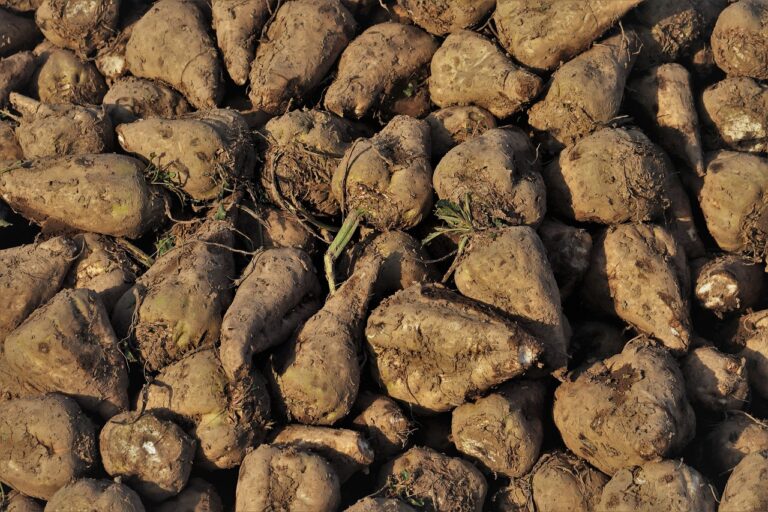Why Are Sustainable Crop Cultivation Practices Important in Kenya?
In the vast fields of Kenya, where the earth’s fertility intertwines with the hopes of its people, the importance of sustainable crop cultivation practices cannot be overstated. From ensuring a steady supply of food to protecting the delicate balance of the environment, these practices play a pivotal role in shaping Kenya’s agricultural landscape.
But why exactly are they so crucial?
Well, my friend, as we embark on this discussion, prepare to uncover the hidden benefits that lie beneath the surface, waiting to be revealed.
Contents
Ensuring Long-Term Food Security
To ensure long-term food security, it’s imperative to implement sustainable crop cultivation practices in Kenya that prioritize efficiency, resilience, and biodiversity. By optimizing yields and minimizing waste, Kenya can sustainably feed its growing population while conserving its natural resources.
One key aspect of sustainable crop cultivation is optimizing yields. This involves employing modern agricultural techniques, such as precision farming and crop rotation, to maximize the productivity of each acre of land. By using precision farming technologies, farmers can accurately monitor soil conditions, crop health, and nutrient levels, allowing them to make informed decisions about fertilizer application and irrigation. Crop rotation, on the other hand, helps to replenish nutrients in the soil, reduce pest and disease pressure, and improve soil structure, resulting in higher yields over time.
Another crucial element of sustainable crop cultivation is minimizing waste. Kenya faces significant post-harvest losses due to inadequate storage facilities, poor transportation infrastructure, and lack of access to markets. Implementing efficient storage and transportation systems, along with better market linkages, can help reduce these losses and ensure that more food reaches consumers. Additionally, promoting the use of modern processing techniques, such as drying and canning, can further minimize waste by extending the shelf life of perishable crops.
Promoting Environmental Conservation
Promoting environmental conservation is vital for sustainable crop cultivation in Kenya, as it ensures the preservation of natural resources and the long-term viability of agricultural practices. By implementing effective soil erosion prevention strategies and water conservation techniques, farmers can minimize the negative impact of farming activities on the environment while maximizing crop yields.
One key aspect of environmental conservation in crop cultivation is the prevention of soil erosion. Soil erosion occurs when the top layer of soil is washed away by water or blown away by wind, leading to the loss of valuable nutrients and reduced soil fertility. To combat this, farmers can employ various measures such as contour plowing, terracing, and the use of cover crops. These practices help to retain soil moisture, reduce runoff, and protect the soil from erosion, ensuring that the land remains productive for future crop cultivation.
Water conservation is another crucial component of environmental conservation in agriculture. Kenya, like many other regions, is experiencing water scarcity due to climate change and increasing water demands. By adopting efficient irrigation systems, such as drip irrigation or precision sprinklers, farmers can minimize water wastage and increase water use efficiency. Additionally, implementing water harvesting techniques, such as constructing ponds or using rainwater harvesting systems, can help farmers to capture and store water during the rainy season for use during dry periods.
Incorporating these soil erosion prevention and water conservation practices into crop cultivation not only helps to protect the environment but also ensures the long-term sustainability of agricultural practices in Kenya. By preserving natural resources and minimizing the negative impact of farming activities, farmers can continue to produce high-quality crops while safeguarding the land for future generations.
| Soil Erosion Prevention | Water Conservation |
|---|---|
| Contour plowing | Drip irrigation |
| Terracing | Precision sprinklers |
| Cover crops | Water harvesting systems |
| Conservation tillage | Efficient irrigation systems |
| Windbreaks | Rainwater harvesting systems |
Enhancing Productivity and Reducing Costs
Implementing efficient agricultural techniques and adopting cost-effective strategies can significantly enhance productivity and reduce costs in crop cultivation practices in Kenya. By reducing environmental impact and optimizing resource utilization, farmers can maximize yields while minimizing input costs.
One effective approach to enhancing productivity is through the use of precision agriculture techniques. This involves the application of advanced technologies such as remote sensing, GPS, and drones to monitor and manage crop growth. By precisely assessing the needs of each plant, farmers can optimize the use of fertilizers, water, and pesticides, reducing wastage and saving costs.
Another cost-effective strategy is the adoption of integrated pest management (IPM) practices. IPM focuses on the use of natural predators, crop rotation, and resistant crop varieties to control pests, minimizing the need for chemical pesticides. This not only reduces environmental pollution but also lowers production costs.
Furthermore, the use of organic fertilizers and compost can enhance soil fertility and reduce the need for synthetic fertilizers. This not only saves costs but also reduces the risk of soil degradation and water contamination.
In addition, efficient irrigation systems such as drip irrigation can significantly reduce water usage by delivering water directly to the plant roots. This reduces water wastage and lowers water costs, especially in regions with limited water resources.
Lastly, adopting agroforestry practices, such as intercropping trees with crops, can provide additional income streams while reducing soil erosion and improving soil fertility. This diversification of crops can also help farmers mitigate risks associated with crop failure or market fluctuations.
Improving Crop Quality and Market Value
By implementing strategies to enhance crop quality and market value, farmers in Kenya can further optimize their sustainable cultivation practices and maximize their profitability.
Improving crop quality involves reducing waste and increasing profitability by focusing on producing high-quality crops that meet market demands. One effective strategy is to adopt precision agriculture techniques, such as using remote sensing technologies and GPS-guided equipment, to precisely apply fertilizers and pesticides. This not only reduces input costs but also minimizes environmental impacts by avoiding overuse of chemicals.
Additionally, farmers can invest in post-harvest technologies and infrastructure to minimize post-harvest losses, such as proper storage facilities and transportation systems. By preventing spoilage and maintaining the quality of harvested crops, farmers can command higher prices in the market.
Furthermore, leveraging market intelligence and adopting market-oriented farming practices can help farmers identify high-value crops and adjust their production accordingly. This includes understanding consumer preferences, market trends, and demand-supply dynamics. By producing crops that are in high demand, farmers can fetch premium prices and capture a larger share of the market.
Through these strategies, farmers in Kenya can improve crop quality and market value, leading to increased profitability and sustainable cultivation practices.
Contributing to Kenya’s Overall Development and Well-Being
Kenya’s overall development and well-being can be significantly enhanced through the implementation of sustainable crop cultivation practices. Adopting sustainable practices not only benefits the environment but also has a positive impact on the economy, leading to economic growth and poverty reduction.
By prioritizing sustainable crop cultivation, Kenya can increase its agricultural productivity and ensure food security for its population. This, in turn, contributes to economic growth by reducing reliance on food imports and creating employment opportunities in the agricultural sector. Sustainable practices also help in conserving water resources, mitigating soil erosion, and preventing deforestation, which are essential for maintaining ecosystem services and preserving biodiversity.
To illustrate the potential impact, consider the following table showcasing the benefits of sustainable crop cultivation practices:
| Benefits of Sustainable Crop Cultivation Practices in Kenya |
|---|
| Economic Growth |
| – Increased agricultural productivity |
| – Job creation in the agricultural sector |
| – Reduced reliance on food imports |
| Poverty Reduction |
| – Ensured food security for the population |
| – Improved livelihoods for smallholder farmers |
| – Increased income generation and reduced income inequality |
Implementing sustainable crop cultivation practices will not only contribute to Kenya’s overall development but also enhance the well-being of its population. By promoting economic growth and poverty reduction, these practices create a sustainable future for both the environment and the people.


